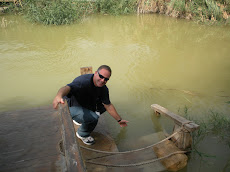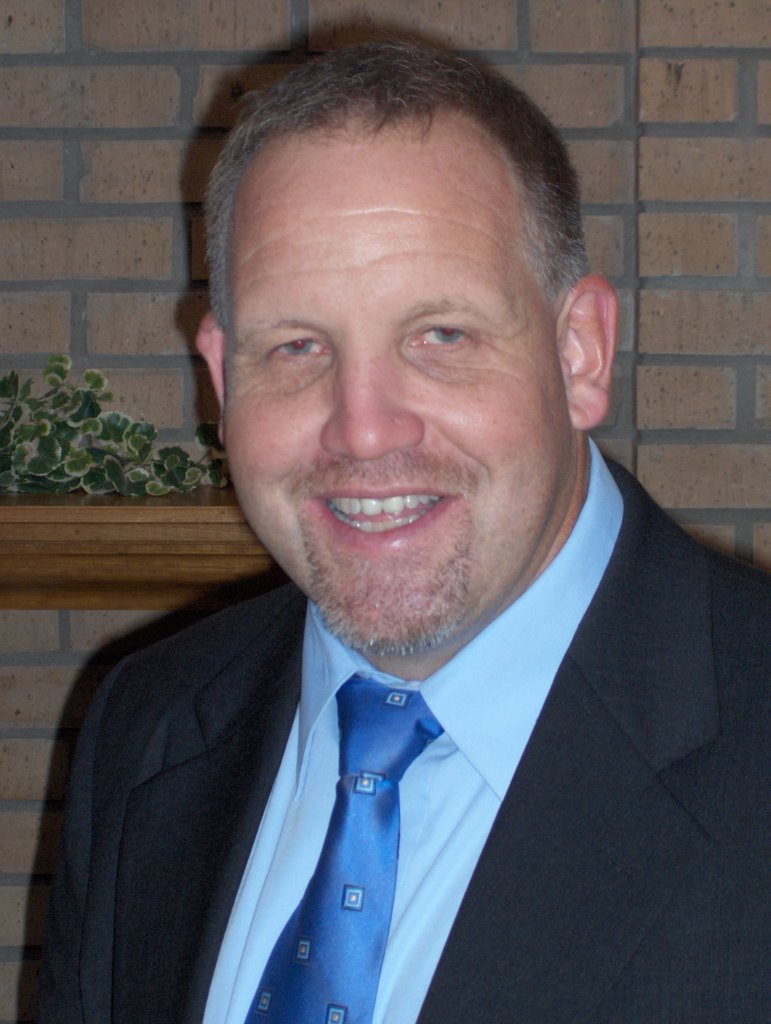
Good Morning! Back in 1986, Don Whitney wrote the following article on the need of revival in the church. He sees parallels between the state of the church prior to the Second Great Awakening and today...
REVIVAL WAS THE CHURCH'S ONLY HOPE
By Don Whitney
"How many thousands . . . never saw, much less read, or ever heard a chapter of the Bible! How many Ten thousands who never were baptized or heard a Sermon! And thrice Ten thousand, who never heard of the name of Christ, save in Curses . . . ! Lamentable! Lamentable is the situation of these people."[1]
Such was an Episcopal preacher's description of the spiritual conditions in the Carolinas prior to the Second Great Awakening. The same words could have been applied to the religious scene in most of America.
A terrible declension of Christianity followed the War of Independence. The outer ripples of the First Great Awakening were still seen as late as the 1770s when as much as 40 to 50 percent of the population attended church. But by the 1790s only 5 to 10 percent of the adult population were church members.[2] Revival historian J. Edwin Orr wrote:
The Methodists were losing more members than they were gaining. The Baptists said they had their most wintry season. The Presbyterians met in general assembly to deplore the ungodliness of the country. The Congregationalists were strongest in New England. [And yet the] Rev. Samuel Shepherd, pastor of a typical church in Lennox, Massachusetts, said in sixteen years he had not taken one young person into the fellowship. . . . The Lutherans were so languishing they discussed uniting with the Episcopalians, who were even worse off. The Protestant Episcopal bishop of New York, Bishop Samuel Provost, quit functioning. He had confirmed no one for so long, he decided he was out of work, so he took up other employment. The Chief Justice of the United States, John Marshall, wrote to Bishop Madison of Virginia and said, 'The church is too far gone ever to be redeemed.'[3]
Orr further notes that for the first time in American history, women were afraid to go out at night for fear of assault. Out of five million citizens, 300,000 were drunkards, and increased sexual immorality multiplied the numbers of illegitimate births and sexual transmitted diseases. Bank robberies were a daily occurrence. Dueling, wrote Daniel Dorchester a century later, "had become a great national sin. With the exception of a small section of the Union, the whole land was deeply stained with blood."[4]
The overall situation seemed so hopeless that a friend wrote to George Washington in 1796, near the end of his two terms as president, "Our affairs seem to lead to some crisis, some revolution; something that I can not foresee or conjecture. I am more uneasy than during the war." Washington replied, "Your sentiment . . . accords with mine. What will be is beyond my foresight."[5]
Five major factors contributed to the decline. First, the effect of the war itself. The independence movement had not been a unanimous one. The Revolutionary War was not a unified American effort, but a civil war where at least a third of the population was loyal to the crown perhaps another third undecided. The Christians in the colonies were divided over this issue as well and this affected the unity of local churches for years. The war also left many congregations without ministers. After sacrificing much for the sake of liberty, young soldiers returning home often found the insipid message and passionless mission of their formalistic, tradition-encrusted local church irrelevant by comparison. A young Timothy Dwight, who would become one of the leaders of the coming awakening, complained that "seven years of war had unhinged the principles, morality, and the religion of the country more than could have been done by a peace of forty years." [6]
Second, the impact of Tom Paine and rationalistic Deism. Paine was an American patriot and advocate of the French revolution. Few books in our history have been as popular (in terms of the percentage of the population who bought them) as his pair, The Rights of Man and The Age of Reason. He ridiculed Biblical Christianity and turned many to a reason-exalting Deism. Referring to the Bible, Paine scoffed, "It would be more consistent that we called it the word of a demon than the word of God."[7] To the Deist, God was distant and uninvolved in the world. Christianity was stripped of the supernatural and presented primarily as a moral code. Although the Deism of men like Paine and Thomas Jefferson flourished only briefly at the end of the eighteenth century, its influence was profound. Most Americans had never heard the divine origin of the Scriptures questioned, and they were unable to answer even the simplest objections.
The third cause of deterioration in the religious fabric was French infidelity. America's alliance with France during the War of Independence opened the gates for a flood of infidelity in the new nation. Whereas Deism typically showed reverence for God, those infected with the philosophies of Voltaire and Rousseau were invariably atheists. This French secularism was especially persuasive among the educated. "In 1783," illustrates Dorchester, "a revival occurred in Yale College, which swelled the membership of the college church larger than it had been before; but twelve years later the college was wholly pervaded with French infidelity, and only four or five students were professedly pious."[8] "Princeton fared no better," adds Orr, "there being one year no more than two students who professed religion."[9] Around the country, "infidel clubs abounded, with their usual accompaniment of sex orgies--so that the national existence was itself seriously jeopardized, thought some."[10]
Unitarianism was a fourth reason for the nation's erosion. Denying the Deity of Christ and drifting toward humanism, Unitarians gained control of many strategic Congregational churches during the years between the war and the turn of the century and split the denomination irreparably. A fifth and often overlooked factor was the westward expansion of the population. So rapidly had easterners left their homes that by 1800 nearly a million people had made their way west. This dramatic population shift not only weakened many churches in the east, it also intensified the irreligious climate of the west. The pioneer areas were often lawless and violent. In The Great Awakeners, Keith Hardman observes that "In many towns of considerable size, no place of worship could be found, and religious services had never been held. Therefore, several hundred thousand people were beyond the reaches of the gospel."[11]
Spiritual apathy, irreverence, skepticism, infidelity, atheism, immorality, illegitimacy, sexually transmitted diseases, drunkenness, dueling, robbery, rejection of Scripture, heresy, lawlessness, violence, and general godlessness characterized America in the last quarter of the 1700s. Was it really so bad, or has the situation been overstated for the sake of effect? Iain Murray admits that "The decline of Christian influence before a revival has sometimes been exaggerated in order to emphasize the scale of the subsequent transformation." However, in this case it is clear that "The Second Great Awakening in America requires no such distortion of history in order to justify its title."[12] Nothing less than a sovereign act by an omnipotent God could effectively deal with the situation. Revival was the church's only hope.
And revival was what God sent. A spark that He kindled in the 1790s burst into flame in the early 1800s as the Second Great Awakening, both in the apathetic, skeptical east and the lawless, godless west. The preaching of the Law of God awakened people's consciences, laid upon them an unrelenting conviction of sin, and terrified them with the realities of judgment and eternal punishment. Such preaching, followed by the application of the Gospel of Jesus Christ, resulted in the conversion of hundreds of thousands in the early decades of the nineteenth century. The wind of God's Spirit blew almost everywhere. New congregations began dotting the churchless western landscape. Bible-preaching churches back east were filled again. Christians hungered for the teaching of God's Word. Holy living became their passion. They delighted in prayer meetings and worship services.
It had been half-a-century since America had seen the Lord work so mightily. But He had not forgotten His people. He returned in great power and filled His once-degraded church with His glory.
--------------------------------------------------------------------------------
1. "The Return of the Spirit," Christian History, Issue 23, 24.
2. Mark A. Noll, A History of Christianity in the United States and Canada (Grand Rapids, MI: Eerdmans, 1992), 163.
3. J. Edwin Orr, "The Role of Prayer in Spiritual Awakening," Spirit of Revival, March 1995, 30.
4. Daniel Dorchester, Christianity in the United States (New York: Hunt and Eaton, 1889), 342.
5. J. Edwin Orr, The Light of the Nations (Grand Rapids, MI: Eerdmans, 1963), 17.
6. Mark Noll, et al., eds. Christianity in America:A Handbook (Grand Rapids, MI: Eerdmans), 162.
7. Quoted in "The Return of the Spirit," Christian History, Issue 23, 27.
8. Dorchester, 287.
9. Orr, 17.
10. Orr, 17.
11. Keith J. Hardman, The Spiritual Awakeners. (Chicago: Moody, 1983), 131.
12. Iain Murray, Revival and Revivalism. (Edinburgh: The Banner of Truth Trust, 1994), 116.
This article first appeared in Revival Commentary 1, no. 2 (Fall 1996): 5-7.
Copyright © 1996 Donald S. Whitney.
Copyright Disclaimer: All the information contained on the Center for Biblical Spirituality website is copyrighted by Donald S. Whitney. Permission granted to copy this material in its complete text only for not-for-profit use (sharing with a friend, church, school, Bible study, etc.) and including all copyright information. No portion of this website may be sold, distributed, published, edited, altered, changed, broadcast, or commercially exploited without the prior written permission from Donald S. Whitney.


2 comments:
Interesting. I just read the first chapter/message from D. Martin Lloyd-Jones in the book, "Puritans: Their Origins and Successors," in which he looks back at the major revivals in history up to a certain point when they seemed to stop. His thoughts on why are fascinating. Anyway, I manage the U.S. office of Banner of Truth. The "Puritans..." book was one that I hadn't spent much time with so wanted to at least get a flavor of by reading the first chapter. Thanks for posting this, Bryan. Interesting stuff, to be sure. Hope you're doing well.
Steve
www.trophiesofhisgrace.blogspot.com
Thanks Steve for your encouraging comments. I love the Banner of Truth Publications.
Take care,
Bryan
Post a Comment